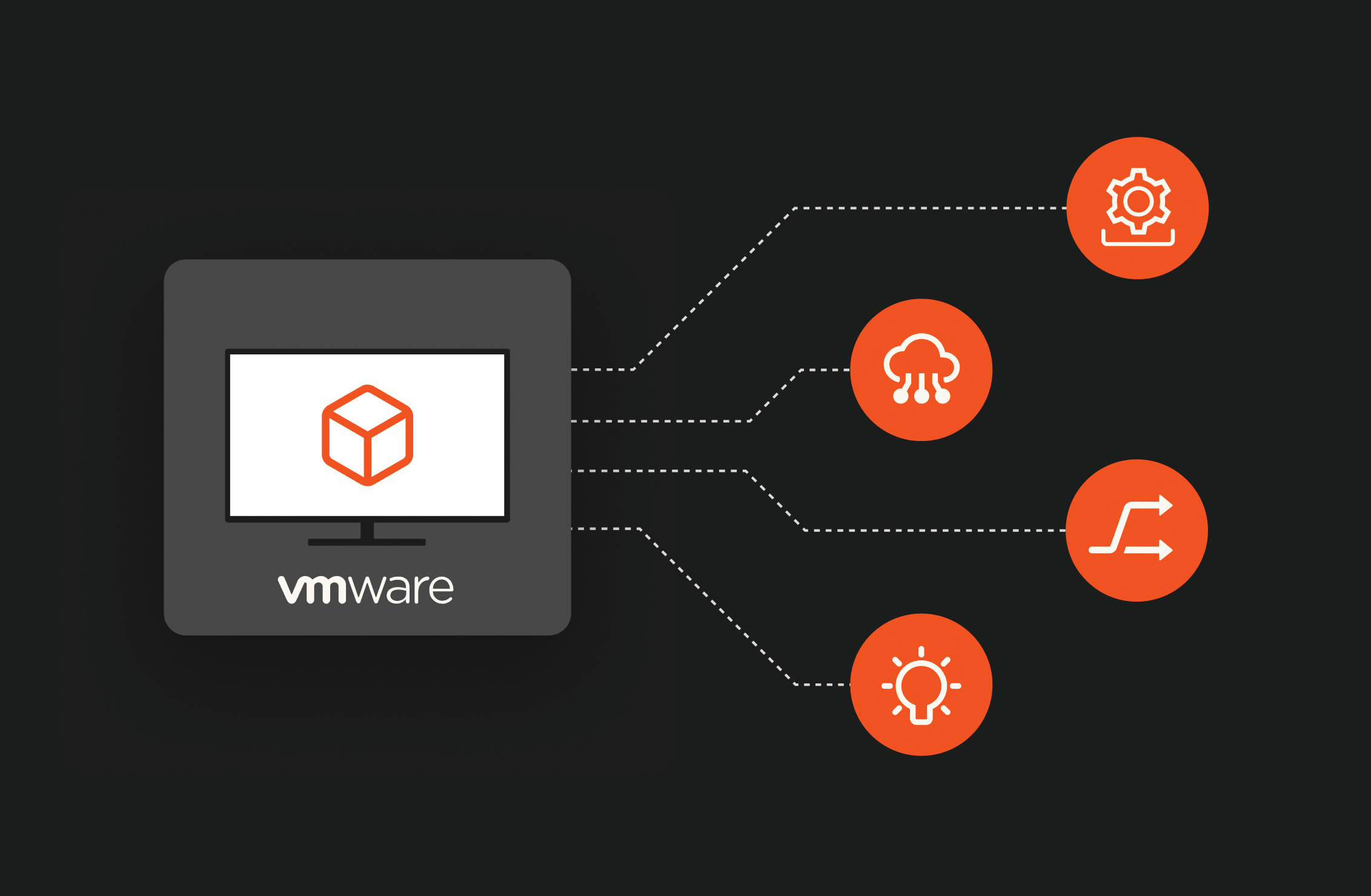If you’re concerned about navigating recent changes at VMware after the acquisition by Broadcom, you’re not alone. Changes around pricing and packaging have sparked concerns among many IT leaders.
But many of these pros have honed in on the most important next step—and it might not be what you think.
To help set you up for success and weigh your options as you navigate this shift, we’ve shared these findings and put together “A Buyer’s Guide to Modern Virtualization,” with all the pros, cons, and recommendations you’ll need. Read on to learn more.
First Things First: Optimize and Stabilize Your VMware Environment
Let’s take a step back.
Disruptive, pivotal moments like this never seem to come at a good time, but they have a way of shaking up the status quo for the better. Through our research and conversations with many of you, one thing is clear: The next right step (and the least disruptive path) for most IT teams is to stay put on VMware, at least for now.
Of course, we don’t suggest simply sitting and waiting. Now is the time to streamline and optimize your VMware environment. With that solid foundation in place, you go on to modernize applications on your terms.
Keep Your Options Open with an Optimized Storage Platform
Forward-thinking IT leaders aren’t just asking how to meet VM application demands at this moment; they’re reconsidering entire existing infrastructures. It’s likely to be the most important, incremental first step on any modernization journey.
In “A Buyer’s Guide to Modern Virtualization,” we outline exactly how storage can supercharge modernization—from optimized storage that can help to offset cloud migration costs to VMware-integrated storage platforms with predictable pricing and upgrades that can insulate you from future changes. In this guide, we explore various pathways, including:
- Cloud-based managed services, such as Azure VMware Solution, Google Cloud VMware Engine, or Oracle Cloud VMware Solution. Benefits like scalability and reduced infrastructure management overhead are bolstered further with optimized storage that can help to offset migration costs.
- Alternative hypervisors for on-premises virtualization, such as Hyper-V, Nutanix AHV, and OpenStack. This is a good pathway if you’re coming up on your VMware renewal but aren’t ready to move to the cloud or adopt containers.
- Containerization options like consolidating VM infrastructure within Kubernetes clusters so you can easily run applications in VMs alongside applications in containers.
No matter which path you choose, data storage will be the foundation for your application strategy. A seamless, unified storage platform can give you more options. That’s priceless in the face of uncertainty and for future transformation efforts.

BUYER’S GUIDE, 14 PAGES
A Buyer’s Guide to Modern Virtualization
Seize the Moment. Future-proof Your Virtualization Strategy Today
Ready to take the next step? The Buyer’s Guide has a quick self-evaluation to help you assess which modernization pathway is right for your workloads. With that, you’ll be able to take the right incremental next steps so you can modernize on your terms.
Of course, as always, Pure Storage is here as your partner to help. With a platform that’s compatible with various virtualization providers, public clouds, and container platforms, we can help you create a future-proof infrastructure that will support everything from legacy applications to the workloads of tomorrow.
